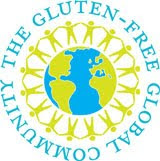August is National Breastfeeding Awareness month with World Breastfeeding Week celebrated August 1st – 7th. World Breastfeeding Week celebrates the Innocenti Declaration on the Protection, Promotion, and Support of Breastfeeding that was signed in 1990. This is celebrated in over 120 countries and provides the largest, global outreach for the breastfeeding movement. The Innocenti Declaration lists the benefits of breastfeeding, along with global and governmental goals.
Yea!! OK, this may not seem very exciting to you, unless you’re a parent. However, breastfeeding babies is the best way to nourish them & research continues to show it can prevent celiac disease, along with many other health problems, in children. Now, that IS exciting, don’t ya think?
A few studies to note:
American Journal of Clinical Nutrition, May 2002, a study of Swedish children was published whose aim was to explore whether breast-feeding and the mode of introducing dietary gluten influenced the risk of celiac disease in childhood. The big finding of this study was the lowered risk of celiac disease in infants who were still being breast-fed compared with infants who were no longer breast-fed at the time when gluten-containing foods were introduced into the diet. The risk was even lower in those infants who continued breast-feeding beyond the time at which gluten was introduced. The study seems to show that gradual introduction of gluten-containing foods into the diet of infants while they are still being breast-fed reduces the risk of celiac disease in early childhood.
In the Annals of Nutrition & Metabolism a case control study of the effect of infant feeding on celiac disease was published in 2001. It found the risk of developing celiac disease decreased significantly by 63% for children breast-fed for more than 2 months as compared with children breast-fed for 2 months or less. The age at first gluten introduction had no significant influence on the incidence of celiac disease comparing first gluten introduction into infant diet less than 3 months vs. greater than 3 months. The study concluded that a significant protective effect on the incidence of celiac disease was suggested by the duration of breast-feeding (partial breast-feeding as well as exclusive breast-feeding). The data did not support an influence of the age at first dietary gluten exposure on the incidence of celiac disease. However, the age at first gluten exposure appeared to affect the age at onset of symptoms.
A study published in the British Medical Journal Archives in Childhood in 2006 was a systematic review and meta-analysis of observational studies published between 1966 and June 2004 that examined the association between breast feeding and the development of celiac disease. All the included studies found an association between increasing duration of breast feeding with a decreased risk of developing celiac disease.
A bit of a disclaimer here…I am a certified breast-feeding educator, so I’m a bit biased towards the benefits of feeding our children human breast milk. My favorite class I took in the breast-feeding educator course (I’m certified through the state of TX) was on the composition of breast-milk. Scientists have only grazed the surface of the complexicity of human breast milk & it’s amazing properties. Human breast milk is constanting changing, based on the needs of the baby & his/her rapidly growing body. It is truly the best & perfect food for our little ones. I don’t need science to tell me babies need their mother’s milk, but I love to read about what scientists uncover about this remarkable, living food!
Also, a side note I’ve thought about…remember the new Mayo clinic study released this summer? Here’s my post about it. Well…there are many things that have changed over the past 50 years…types of wheat grown, processed foods, etc. Well, what about the increased numbers of formula fed babies? Artificially feeding babies has become the “norm” over the last 30 or more years. I believe feeding babies processed food, esp. from day one, is risky at best and should NEVER be considered normal.


![Reblog this post [with Zemanta]](https://img.zemanta.com/reblog_e.png?x-id=69ee6c7e-92c0-4b86-a2c0-b22551e07388)




